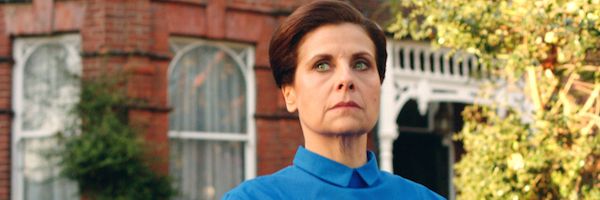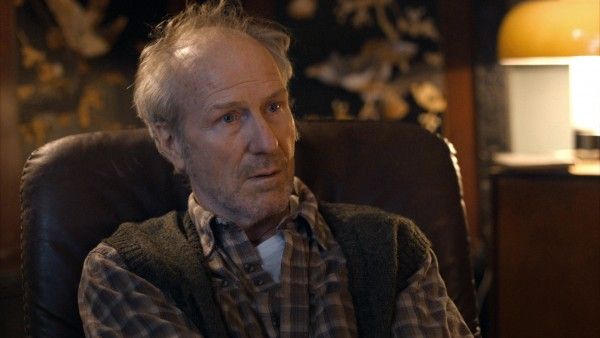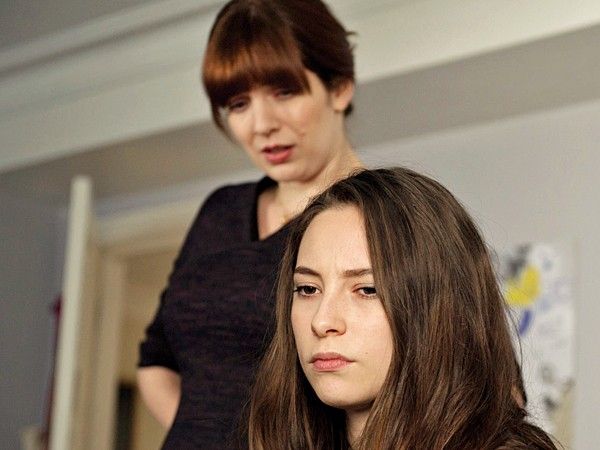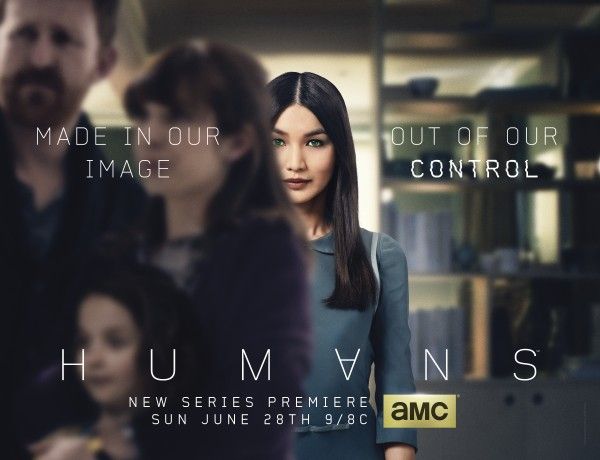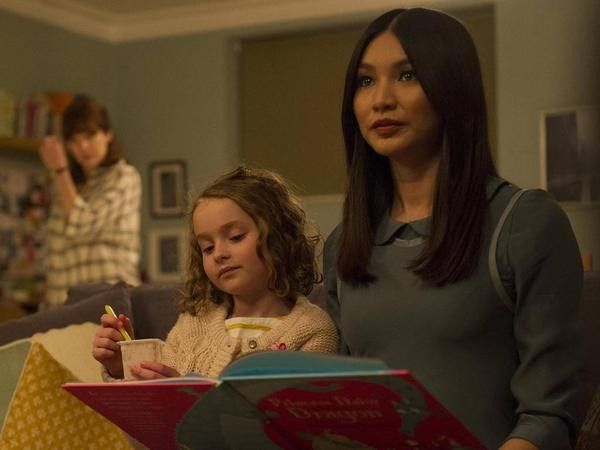Like so many other films that involve a future where robots are a key part of modern society, Humans considers the point at which androids become all but indistinguishable from people and, in a few rogue cases, begin to toy with self-consciousness. Part of what distinguishes the AMC series, which also plays on the BBC, is its aversion to over-saturating the world that's been created here with proof of the ubiquity of the science-fiction conceit, which can often lead to repetitive visuals and an inert, one-note narrative. Thankfully, the creators and writers of Humans are not so overtly impressed with their relatively familiar conception of the future, instead focusing on more knotty concepts of humanism in the face of enhanced robotics or, conversely, the capacity of androids to forgive humans for their darker impulses and litany of misdeeds when they begin to realize and practice self-awareness.
As such, one of the primary focuses of the series is how humans conceive of their own self-worth, with humans increasingly relying on androids to handle menial jobs and thankless labor. In the case of the Hawkins family, led by parents Joe (Tom Goodman-Hill) and Laura (Katherine Parkinson), their new android, Anita (Gemma Chang), is utilized primarily as a housekeeper and nanny to their three children. This, mind you, is mostly Joe's plan, as Laura is immediately suspicious of the robot's intentions, despite the fact that robots are commonly used for just such a purpose in this world and are run by programming that doesn't allow them to even touch the children without the parents' permission. The series, adapted from the Swedish drama Real Humans by creators Sam Vincent and Jonathan Brackley, highlights the minor satisfaction and sense of usefulness that the work, now passed on to androids, gave humans, and how the absence of those feelings eats away at men and women alike.
It's a far more fascinating perspective than one anchored to a violent android takeover, but the series limits itself by locking onto particular storylines as cast studies rather than considering the broad swath of arenas where this prevalent uneasiness over humanity's worth grows. Beyond the Hawkins brood, the series follows how androids have come to take up a lot of jobs in medical rehabilitation, nursing, and home health care, with one police officer, Drummond (Neil Maskell), dealing with his wheelchair-bound wife's dependency on an android over him. Elsewhere, Dr. George Millican (William Hurt), one of the original engineer of the "synths," is having a hard time transitioning from his first android to an upgraded unit that was created to look after him in his old age, even when Millican doesn't wish to be handled. And as competently made and aesthetically pleasing as the series is on the whole, there's a safeness to the compositions and the editing that makes the imagery feel automated rather than personal or particularly inspired. There's no sense of the chaotic internal conflicts that are going on, outside of the intimations in the uniformly effective cast's performances.
This hesitancy toward ambition, on both the technical side and in terms of narrative, holds Humans back but there's still plenty of big ideas embedded in the story. This goes especially for the flashbacks to a contingency of "synths" that have been granted self-consciousness by a rebellious engineer, Leo (Colin Morgan), who regularly liberates androids, including Anita. In these sequences, Vincent and Brackley get at humanity's propensity for having less-than-adequete empathy for other species or creations, and how "synths" allow humans to blithely explore their darkest impulses without risk or palpable regret. Of course, its the risk and regret that often makes such experiences resonate all the more clearly in memory, much like its the hardships of work that make doing the job all the more satisfying. In other words, Humans contemplates a world with increasingly less quotidian challenges, a timely reflection of our already alarming dependence on computers for everything from work to socializing to entertainment. It's ironic, then, that the main hinderance of the largely alluring Humans is that it's only challenging up to a point in its examination of humankind's worth in an age where their importance is dwindling.
★★★ Good — Proceed with cautious optimism

